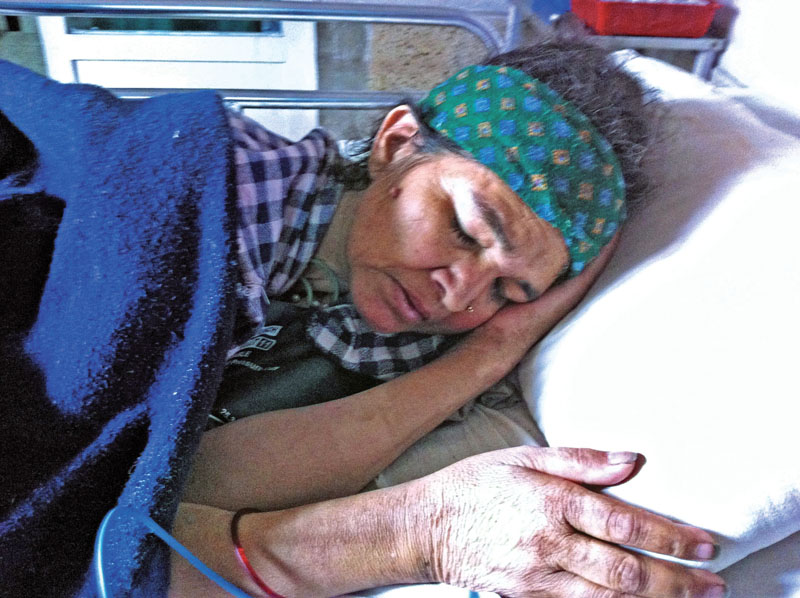LETTERS: Killing the justice
Ganga Maya Adhikari has served a fresh five-day ultimatum to the new government starting Friday, demanding murderers of her son, Krishna Prasad Adhikari, be booked. Ganga Maya and Dr Govinda KC are known for their fast-unto- death to set things right.
One has demanded justice over the killing of her son while the other has raised the issues that have crippled the medical education in the country. Both have successfully attracted wider public support though government of the day has turned a deaf ear to their demands.
Had there been any responsible government they would not have to take extreme measures time and time again. I am of the opinion that some of KC’s demands are genuine as they aim at ending anomalies long practised in the medical education sector.
At the same time Adhikari whose husband passed away two years ago seeking fair justice for his son’s murder has staged a single-person crusade against those who committed crimes during the insurgency that brought them to power but the victims of the conflict have been denied their rightful justices.
There is a widespread speculation that the present government is clandestinely inclined towards giving no
justice to the conflict victims. But the quest for justice will never die down though it will take another decade or century.
Bhogendra Acharya, Kathmandu
Rainwater
Although it is widely believed that the Melamchi Water Supply Project would meet the water demand in the
Kathmandu Valley, concerned agencies are worried about that the demand would continue to increase considerably and beyond the project’s projected capacity by 2025.
I would like to suggest that the concerned agencies should conserve rainwater in the rivers of the Valley to meet the increasing water needs in the days to come.
Manandhar, Kathmandu
Zero waste
This refers to your editorial “From Waste to Use” (THT- August 5). When it comes to waste management in India, little is the way it’s meant to be. Many municipalities simply dump the waste and claim these dumps are landfills.
Landfilling should be done only for inorganic wastes and the rejects after processing. Apart from Solid Waste, open defecation and sullage water management are huge problems to Civic Bodies.
Improper waste management causes public health and environmental hazards like climate change, air and water pollution, soil contamination, etc.
As responsible citizens, the residents think whether they can do their part to clean up this mess and leave a better place to live for many generations to come. Every household must segregate the wastes at source as bio-degradable and non-degradable.
We need to learn lessons from Sweden, which is a zero waste country and from Sri Lanka, which is segregating its waste and Bhutan where everybody is conscious to not pollute their land. Public must be warned as to what to do and not to do through media.
Vinod C. Dixit, Ahmedabad






